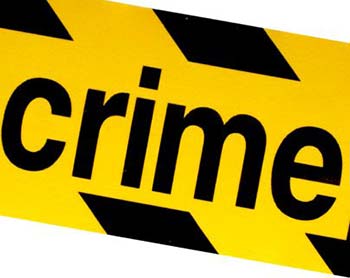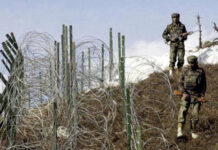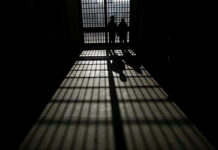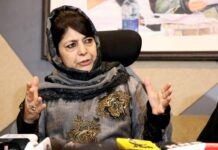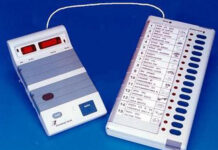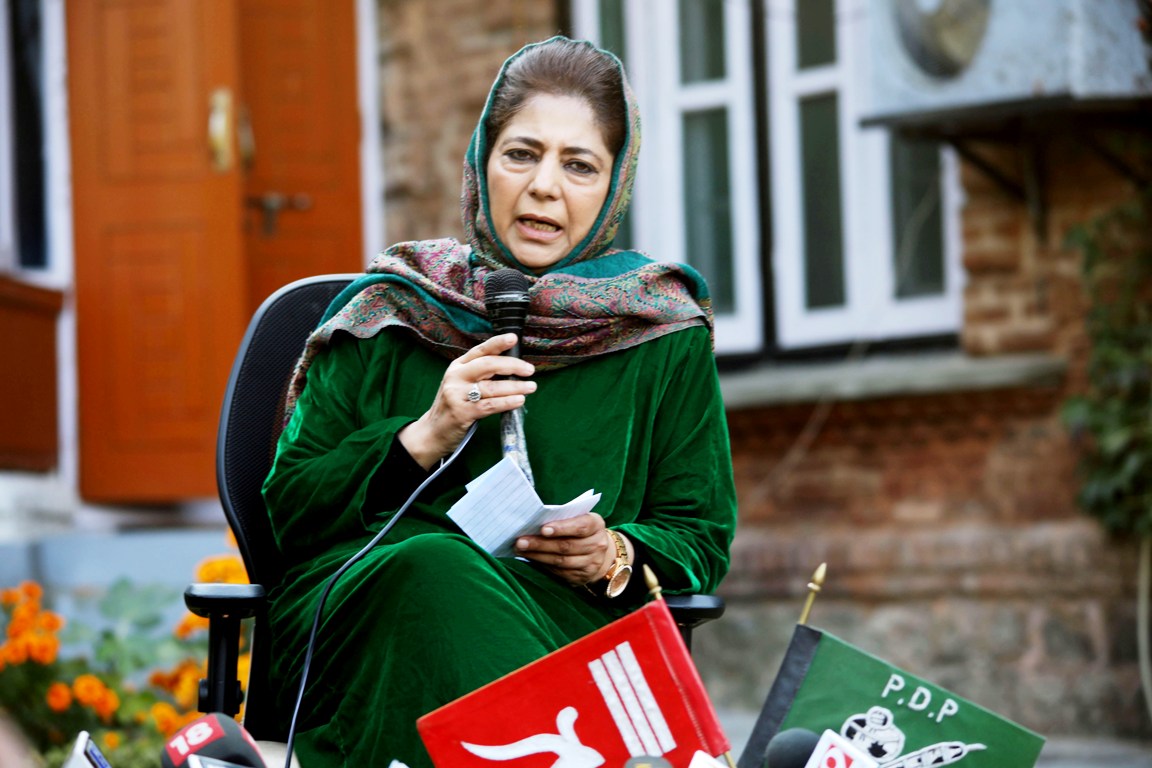by Khalid Bashir Gura
SRINAGAR: The Supreme Court order on the internet ban was welcomed by the people in Kashmir. After more than 150 days of the ban, it indicated a glimmer of hope that could fill the void of digital divide enforced by the government since August 5. The court termed the internet service as a fundamental right.

Besides, the court laid down the norms for any disruption in future and also discussed the unjustifiable imposition of Section 144 of the Code of Criminal Procedure (CrPC).
Digitally starved people of Kashmir welcomed the verdict.
Invoking the fundamental rights, SC has declared that free speech and expression (Article 19(1) (a)) and right to carry on any trade (Article 19(1) (g)) using the medium of internet is constitutionally protected. The Courts verdict questioned the reckless imposition of powers granted under Section 144, which cannot be used to indefinitely suppress legitimate expressions, opinions and grievances in a democracy.
Besides, the SC also ruled that authorities must publish internet suspension orders and state material facts in Section 144 orders to allow citizens to pursue judicial review.
“It is the job of the court to uphold the balance between liberty and security in Jammu and Kashmir in the best possible manner”, the Supreme Court observed.
Response
The ban has played havoc with the earning prospects of people engaged in tourism and e-commerce besides putting the education of students at stake. It hit media hard.
“Finally, the judiciary has come to our rescue,” Kashmir Chamber of Commerce and Industries (KCCI), Secretary-General Farooq Amin said. “We had to suffer a loss of around 18000 crores. We are hopeful that government takes order seriously and restore internet without delay.’’
Secretary-General, of the Houseboat Owners Association, Abdul Rasheed Kaloo, said, the ban was “a tremendous blow” to tourism. “We lost touch with our entire industry and many don’t come here because of lack of it,” Rasheed said. “So if it is restored, things may be hopeful.’’
Advocate Shefan Jahan, expressed admiration at the Supreme Court order and said it has made some good observations but it has not issued any mandatory orders revoking government orders. However, the observations made are suggestive to the government and those rekindle the hopes of the common man in Kashmir.
The advocate said the best observation is that the Court has suggested to the government that you cannot put a blanket ban on internet, stifle dissent. The order highlighted the sacred essence of media that is working under tremendous pressure to stressing the essence to the access to the internet as a fundamental right.
Associate Professor, Media Education Research Centre (MERC), Dr Syeda Afshana, welcomed the orders. “The Supreme Court order came after six months even though this order should have come much earlier,” she said. “It is a relief and good news but still they are thinking on it. It shows the uncertain times we are living in, where the basic fundamental right to communicate is denied, delayed and is not certain, and can be snatched any moment. The unpredictability of it is always hanging overhead. Can they afford to have such a prolonged internet gag at any other place? They can’t. This means Kashmir is a different place, an abnormal place where normal things don’t apply. This delayed judgement, prolonged gag means Kashmir is a different case.”
Afshana asserted that there has been tremendous academic lost. Internet and communications are an integral part of learning in the twenty-first century. As a teacher, she said, she couldn’t stay updated. “I couldn’t keep track of many projects and they got cancelled,” she said. “There was a tremendous loss in terms of networking, communication and learning. I feel bad for student community for they had gone through a lot of problems because of internet ban.”
Musa Mubarak, the research scholar at the University of Kashmir, expressed happiness at the orders but wants them to be implemented immediately. “It should be General Internet Services and not restricted to some privileged places, and people,” Musa said.
“As a researcher, my whole work depends on the internet. I had to face a multitude of problems. Staying updated is my need and I felt fossilized. I had to update documents, scholarship forms, download research papers and carry out other academic work but in the absence of the internet I had to travel outside many times. Even though after months of abrogating article 370, the government had facilitated internet at selected places but everybody can’t afford to spend hours in a long queue. ’’
The Petition
The Supreme Court directions came in a writ petition that Kashmir Times editor Anuradha Basin moved on August 12. In a series of hearings, the central government and the Jammu and Kashmir administration justified the restrictions as preventive steps.
The petition had a serial hearing. It followed the following chronology till the bench passed directions last week:

August 5, 2019: Centre passes resolution to remove provisions of article 370, which gave special status to the erstwhile state of J&K.
August 6: Advocate M L Sharma moves SC challenging abrogation of article 370.
August 10: Kashmir Times editor Anuradha Bhasin moves SC against curbs on media after the abrogation of article 370 in Kashmir.
August 24: Press Council of India moves SC supporting Centre and J&K’s decision to impose restrictions on communication
August 28: SC issues notice to Centre, J&K on a plea of Kashmir Times editor for removal of restrictions imposed on journalists
September 5: SC fixes for hearing on September 16 various pleas on the issue.
September 16: SC asks Centre to restore normalcy in Kashmir.
October 16: SC asks J&K administration to place before it orders imposing communication restrictions
October 24: How long restrictions will continue in valley, SC asks J&K administration
November 6: SC seeks report from Centre on plying of public transport vehicles in J&K during restrictions
November 27: SC reserves verdict on pleas challenging curbs in J&K.
January 10, 2020: SC asks J&K to review all curb orders within a week.
January 14, 2020: In response to Supreme Court’s order, the Government of Jammu and Kashmir on Wednesday issued the order regarding restoration of the internet which reads:
“1.Whereas, the police authorities have brought to notice material relating to the terror modules operating in the UT of J&K, including handlers from across the border, and activities of separatists/anti national -elements within who are attempting to aid and incite people by transmission of fake news and targeted messages through use of internet to propagate terrorism, indulge in –rumour-mongering, support fallacious proxy wars, spread propaganda/ ideologies, and cause disaffection and discontent; and
2.Whereas, based on the intelligence inputs and assessment of the law and order situation obtaining on the ground, the law enforcement agencies , while dealing the present situation, have inter-alia reported about the sustained efforts being made by the terrorist to infiltrate from across the border, re-activate their cadres and scale up anti –national activities in Kashmir Division as well as terrorism affected areas of the Jammu Division, by communicating effectively with their operatives within the UT of J&K through Voice on Internet Protocol ( VOIP) and encrypted mobile communication through various social media applications to co-ordinate and plan terror acts; and
3.Whereas, the misuse of data services by anti-national elements has the potential to cause large scale violence and disturb public order which has till now been maintained due to various pre-emptive measures, including restrictions on access to internet with relaxations in a calibrated and gradual manner, after due consideration to the ground situation; and
4.Whereas, as on the date, mobile internet activity of all kinds has been suspended in the UT of J&K. However, internet through fixed line broadband facility exists in Jammu Division while in the Kashmir Division, to facilitate the general public, students, etc., 844 e-terminals have been established besides 69 special counters for tourists, apart from separate terminals for filing of GST returns and application forms for various examinations. Also, among others, a number of Government departments including those related to essential services and Government hospitals have also been provided access to the internet; and
5.Whereas, the Hon’ble Supreme Court of India has, in writ Petition (Civil) No.1031 of 2019 titled Anuradha Bhasin Union of India and Ors. vide its judgment dated 10.01.2020, directed to review all orders suspending internet services forthwith and while taking decisions regarding restrictions, adhere to the principle of proportionality.
6.Now, therefore, taking into account and ground situation and after considering the available alternative measures, in light of the reports of the authorized officers , subject to detailed review that is being undertaken, I, Principal Secretary to the Government Home Department, being satisfied that, it is absolutely necessary to do so in the interest of the sovereignty and integrity of India, the Security of the State and for maintaining public order, in exercise of the powers conferred by sub-section (2) of section 5 of the Indian Telegraph Act, 1885 and the sub-rule (1) of rule 2 of the Temporary Suspension of Telecom Services (Public Emergency or Public Safety) Rules, 2017 hereby direct as under:
a)The existing access/communication facilitates indicated in the para 4 above shall continue and the Divisional Administration Kashmir shall additionally establish 400 internet kiosks;
b)Internet service providers (ISP-BSNL/private service providers) to provide the broadband facility ( with Mac –binding ) to all the institutions dealing with essential services, Hospitals, Banks, etc. as also Government offices, and in order to facilitate tourism, to hotels and tour and travel establishment;
c)Prior to giving such facility, the ISPs shall install necessary firewalls and carry out ‘white-listing’ of sites that would enable access to Government websites and websites dealing with essential services, e-banking, etc. excluding, however, all the social media sites. To amplify, there shall be a complete restriction on social media applications allowing peer to peer communication and virtual private network applications for the time being.
d)The Institutions and Government offices that are being provided internet access shall be responsible to prevent any misuse, for which, for which they shall take all the necessary precautions, including appointment of nodal officers, keeping a record of persons/devices, managing and monitoring day to day usage, changing accessibility credentials on a daily basis and ensure internet availability to only authorized users, etc.
e)2G mobile connectivity on postpaid mobiles for accessing white-listed sites, including for e-banking, shall be allowed, to begin with, in the districts of Jammu, Samba, Kathua, Udhampur and Reasi. However, in the other districts of the UT of J&K, mobile internet connectivity shall remain suspended till further directions, pursuant upon a review of the adverse impact, if any, of this relaxation on the security situation.
7.The authorized officers shall ensure communication of these directions to the service providers with immediate effect and ensure their implementation in letter and spirit.
8.The aforesaid directions shall be effective from 15.01.2020 and remain in force for a period of 07 days unless modified earlier. These shall supersede all the orders earlier issued on the subject.”
Directions
“The freedom of speech and expression through the medium of the Internet is an integral part of Article 19(1)(a) and accordingly, any restriction on the same must be in accordance with Article 19(2) of the Constitution,” a three-judge bench headed by Justice NV Ramana finally ruled.
The right, however, is subject to reasonable restrictions on grounds such as sovereignty and integrity of India, the security of the state, friendly relations with foreign states, public order, decency or morality, contempt of court, defamation and incitement to an offence. But any restriction has to be based on law and has to be reasonable, the court said.
In September last year, the Kerala High Court has said that access to the Internet was a fundamental right and it can’t be taken away arbitrarily.
Noting that right of trade through the Internet fosters consumerism and availability of choice, the Bench observed. “Therefore, the freedom of trade and commerce through the medium of the Internet is also constitutionally protected under Article 19(1) (g), subject to the restrictions provided under Article 19(6).”
Article 19(6) empowers the state to make laws to lay down the professional or technical qualifications necessary for practicing any profession or carrying on any occupation, trade or business.
It also authorizes the state or a corporation owned or controlled by the state to carry on any trade, business, industry or service, whether to the exclusion, complete or partial, of citizens or otherwise.
The bench rejected the government’s argument that selective access to internet could not have been allowed due to lack of technology. “If such a contention is accepted, then the Government would have a free pass to put a complete internet blockage every time. Such complete blocking / prohibition perpetually cannot be accepted by this Court,” the bench observed. “The State / concerned authorities are directed to consider forthwith allowing government websites, localized / limited ebanking facilities, hospitals services and other essential services, in those regions, wherein the internet services are not likely to be restored immediately”.
A Slew of Orders
On J&K, the order said it “would only observe that achievement of peace and tranquility within the erstwhile State… requires a multifaceted approach without excessively burdening the freedom of speech. In this regard, the Government is required to consider various options under Article 19 (2) of the Constitution, so that the brunt of exigencies is decimated in a manner which burdens freedom of speech in a minimalist manner”.
A three-judge bench headed by Mr Justice NV Ramana issued the following directions:
- The Respondent State/competent authorities are directed to publish all orders in force and any future orders under Section 144, CrPC and for suspension of telecom services, including the internet, to enable the affected persons to challenge it before the High Court or appropriate forum.
- We declare that the freedom of speech and expression and the freedom to practice any profession or carry on any trade, business or occupation over the medium of internet enjoys constitutional protection under Article 19(1)(a) and Article 19(1)(g). The restriction upon such fundamental rights should be in consonance with the mandate under Article 19 (2) and (6) of the Constitution, inclusive of the test of proportionality.
- An order suspending internet services indefinitely is impermissible under the Temporary Suspension of Telecom Services (Public Emergency or Public Service) Rules, 2017. Suspension can be utilized for temporary duration only.
- Any order suspending internet issued under the Suspension Rules, must adhere to the principle of proportionality and must not extend beyond necessary duration.
- Any order suspending internet under the Suspension Rules is subject to judicial review based on the parameters set out herein.
- The existing Suspension Rules neither provide for a periodic review nor a time limitation for an order issued under the Suspension Rules. Till this gap is filled, we direct that the Review Committee constituted under Rule 2(5) of the Suspension Rules must conduct a periodic review within seven working days of the previous review, in terms of the requirements under Rule 2(6).
- We direct the respondent State/competent authorities to review all orders suspending internet services forthwith.
- Orders not in accordance with the law laid down above must be revoked. Further, in future, if there is a necessity to pass fresh orders, the law laid down herein must be followed.
- In any case, the State/concerned authorities are directed to consider forthwith allowing government websites, localized/limited ebanking facilities, hospitals services and other essential services, in those regions, wherein the internet services are not likely to be restored immediately.
- The power under Section 144, CrPC, being remedial as well as preventive, is exercisable not only where there exists present danger, but also when there is an apprehension of danger. However, the danger contemplated should be in the nature of an “emergency” and for the purpose of preventing obstruction and annoyance or injury to any person lawfully employed.
- The power under Section 144, CrPC cannot be used to suppress the legitimate expression of opinion or grievance or exercise of any democratic rights.
- An order passed under Section 144, CrPC should state the material facts to enable judicial review of the same. The power should be exercised in a bona fide and reasonable manner, and the same should be passed by relying on the material facts, indicative of application of mind. This will enable judicial scrutiny of the aforesaid order.
- While exercising the power under Section 144, CrPC, the Magistrate is duty-bound to balance the rights and restrictions based on the principles of proportionality and thereafter, apply the least intrusive measure.
- Repetitive orders under Section 144, CrPC would be an abuse of power.
- The Respondent State/competent authorities are directed to review forthwith the need for continuance of any existing orders passed under Section 144, CrPC in accordance with the law laid down above.
The Reactions
National Conference leader Devender Singh Rana said the court’s “observations are significant and the government must take a call to review and restore the (Internet) connectivity immediately”.
“Governments can’t act like irrational emperors. They can’t pass orders like sultans, shutting down communication, imposing Section 144 without giving specific reasons in writing. Suspending emergency services has been declared impermissible. Specific guidelines have now been issued,” Congress leader and senior advocate Kapil Sibal told a media conference. “It is a very big decision by the Supreme Court. It’s historic. Now the decisions — to suspend Internet and telephone and to impose Section 144 — will be tested on the principle of proportionality and reasons will have to be given in writing.”
Sibal added: “The court has ruled that repetitive orders under 144 are abuse of power. We didn’t know why restrictions were imposed on the entire Jammu and Kashmir. The courts didn’t know. Millions of people suffered. The court has now laid down the law. People can challenge the grounds on which Section 144 is imposed if they are not reasonable. And emergency services like e-banking, healthcare can’t be suspended. The government just can’t say there is danger; danger has to be in nature of emergency.”
Former Home Minister P Chidambaram said: “The SC order is a rebuff to the unconstitutional and arrogant stance of the central government and the J&K administration on the restrictions imposed in J&K. The entire team in J&K that designed and executed the plan should be changed. A new set of administrators who respect the Constitution should be appointed. The former governor of J&K, Satpal Malik, should own responsibility and resign from his present post of Governor, Goa.”
Editorials Comments
The Times of India editorial wrote: “The verdict will go a long way towards constraining the ability of governments to wantonly impose Section 144 CrPC and indefinitely suspend internet over long periods and over large geographic areas, without due application of mind. Internet and free movement in Kashmir must be restored.”
The Hindu editorial commented: “The Supreme Court’s verdict on the prolonged lockdown in Jammu and Kashmir (J&K) is indeed admirable. The disappointing aspect of the verdict is the court’s failure to give a ruling on the validity of the government’s actions. It fails to hold the government to account for the manner in which it exercised its powers. It states categorically that an indefinite ban on the Internet is impermissible, but fails to direct the restoration of services. When it says Section 144 of the Code of Criminal Procedure “cannot be used as a tool to prevent the legitimate expression of opinion or grievance or exercise of any democratic rights”, it makes a comment worthy of being treasured in these times of frequent resort to that section. Yet, the court does not go beyond directing the authorities to review all their orders and restrictions forthwith.”
The Wire ran an analysis saying: “The 130-page judgment delivered by Justice NV Ramana, R Subhash Reddy and BR Gavai makes a strong case for limiting the government’s power to restrict a citizen’s access to the internet; it has no explanation for why the court could not strike down restrictions which it found “unreasonable”.”


